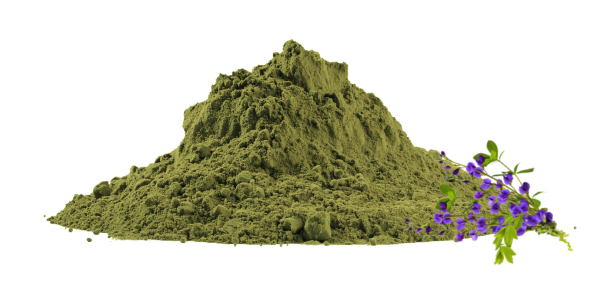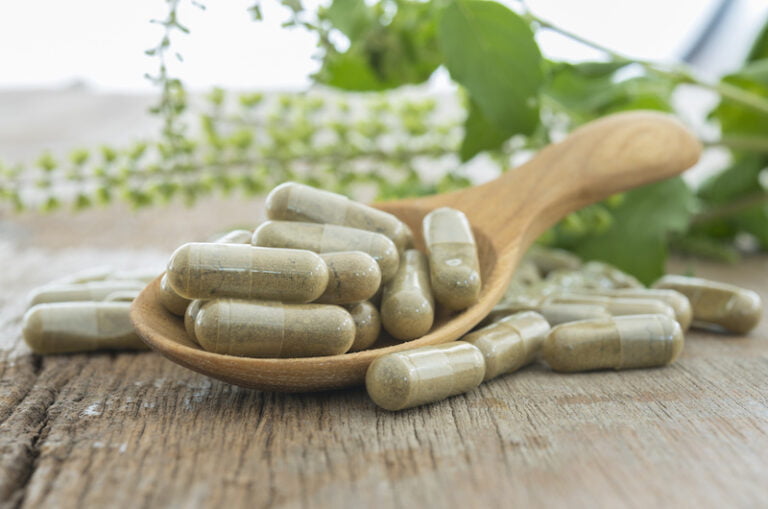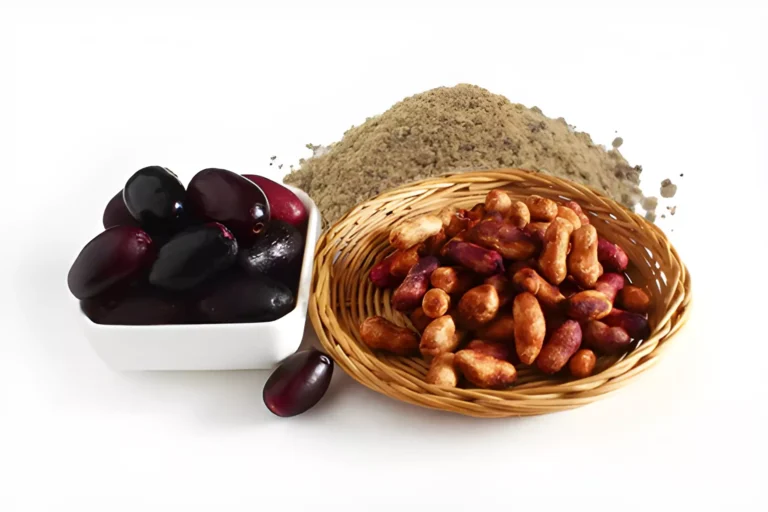5 Powerful Benefits of Indigo Powder for Hair Health
Indigo powder is a natural hair dye that has been used for centuries to color hair and fabrics. It is derived from the leaves of the indigo plant, which are dried and crushed into a fine powder. Indigo powder has many benefits for hair health, such as preventing hair fall, delaying premature hair greying, enhancing hair quality, fighting scalp infections, and alleviating dandruff.
In this article, we will explore the amazing benefits of indigo powder for hair and how to use it effectively.
What is Indigo Powder?
Indigo powder is a dark blue pigment that is obtained from the leaves of the indigo plant (Indigofera tinctoria). The indigo plant is native to India and other tropical regions, where it has been cultivated for its dyeing properties. Its powder is rich in natural anti-inflammatory, antiseptic, and antibacterial properties.

The powder is also a good source of antioxidants, which protect the hair from damage and environmental stressors.
Benefits of Indigo Powder for Hair
Indigo powder has many benefits for hair health, such as:
Prevents Hair Fall
One of the most common forms of hair loss is alopecia, which is caused by inflammation of the hair follicles. Indigo powder can help prevent hair fall by reducing inflammation and soothing the scalp. Indigo powder also strengthens the hair roots and stimulates blood circulation, which promotes hair growth and prevents hair thinning.
You can use indigo powder with hair oil, such as coconut oil or olive oil, to make a nourishing hair mask. Apply the mixture to your scalp and hair, massage gently, and leave it on for an hour. Then, wash it off with a mild shampoo and conditioner. Repeat this once or twice a week to see the results.
Delays Premature Hair Greying
Premature greying of hair is a common problem that affects many people, especially those who are exposed to stress, pollution, or chemical treatments. The leading cause of premature greying is the loss of melanin, which is the pigment that gives hair its color. Indigo powder can help delay premature greying by restoring the melanin levels in the hair and making it darker and shinier. It also covers the grey hair with a natural blue-black hue without causing any side effects.
You can use indigo powder with henna, which is another natural hair dye, to color your hair naturally. Mix equal amounts of indigo powder and henna powder with water to make a smooth paste. Apply the paste to your hair, covering the roots and tips, and wrap your hair with a shower cap. Leave it on for two to three hours, depending on the intensity of the color you want. Then rinse it off with water and shampoo your hair as usual. You can do this once a month to maintain the color and prevent greying.
Enhances Hair Quality
Indigo powder helps improving the quality of your hair by making it softer, smoother, and more manageable. Indigo powder can condition the hair and seal the cuticles, which prevents dryness, frizz, and split ends. Indigo powder can also add volume and bounce to your hair, making it look fuller and healthier. You can use indigo powder with aloe vera gel, which is a natural moisturizer and hair growth booster, to make a hydrating hair pack.
To do so, mix two tablespoons of indigo powder with four tablespoons of aloe vera gel and apply it to your hair, from the roots to the tips. Leave it on for 30 minutes, and then wash it off with water and shampoo. Do this once a week to enhance the quality of your hair.
Helps Fight Scalp Infections
Scalp infections, such as dandruff, fungal infections, and bacterial infections, can cause itching, irritation, and hair loss. Indigo powder can help fight scalp infections by killing harmful microbes and cleansing the scalp. It can also balance the pH level of the scalp and regulate the oil production. By doing so, it prevents the buildup of dirt and debris. You can also use indigo powder with apple cider vinegar, which is a natural antiseptic and anti-fungal agent, to make a cleansing hair rinse.
Mix one teaspoon of indigo powder with two cups of water and one tablespoon of apple cider vinegar. After shampooing your hair, pour the mixture over your hair and scalp and massage gently. Leave it on for 10 minutes and then rinse it off with water. Do this once or twice a week to keep your scalp healthy and infection-free.
Alleviates Dandruff
Dandruff is a common scalp condition that causes flakes of dead skin to fall off the scalp. It can be caused by dryness, fungal infection, or sensitivity to hair products. Dandruff can make your hair look dull and brittle and also lead to itching and inflammation. Indigo powder can help alleviate dandruff by exfoliating the scalp and removing dead skin cells.
It can also moisturize the scalp and prevent dryness and flaking. You can use indigo powder with yogurt, which is a natural anti-dandruff agent, to make a soothing hair mask.
Mix two tablespoons of indigo powder with four tablespoons of yogurt and apply it to your scalp and hair. Leave it on for 20 minutes, and then wash it off with water and shampoo. Do this once a week to get rid of dandruff and restore the shine of your hair.
Indigo Powder vs Henna Powder
Indigo powder and henna powder are both natural hair dyes that can be used to color your hair without any chemicals or additives. However, they have some differences in terms of their properties, effects, and usage. Here are some of the main differences between indigo powder and henna powder:
- Indigo powder is a dark blue pigment, while henna powder is a reddish-brown pigment. Indigo powder can give your hair a blue-black hue, while henna powder can give your hair a reddish-brown hue. You can also mix different proportions of indigo powder and henna powder to get different shades of brown, black, or burgundy.
- Indigo powder works best on dark hair, while henna powder works best on light hair. Indigo powder can darken your hair and cover the grey hair, while henna powder can lighten your hair and add a reddish tint. If you have blonde or light brown hair, you may need to apply henna powder first and then indigo powder to get a darker color. If you have black or dark brown hair, you can use indigo powder directly or mix it with henna to get a richer color.
- Indigo powder needs to be applied after henna powder, while henna powder can be used alone or before indigo powder. The indigo powder does not bind well with the hair, so it needs the henna to act as a base and make the color last longer. Henna powder can bind well with the hair, so it can be applied alone or before indigo powder to enhance the color. If you want to use both indigo powder and henna powder, you need to apply henna powder first and let it dry for a few hours, then apply indigo powder and let it dry for another few hours. This will give you a deep and lasting color.
How to Apply Indigo Powder on Hair
Applying indigo powder on hair is a simple and easy process that can give you a natural and beautiful hair color. Here are the steps to follow:
- Prepare your hair by washing it with a mild shampoo and drying it with a towel. Please do not use any conditioner or hair products, as they may interfere with the color absorption.
- Prepare the indigo powder by mixing it with water in a bowl. The amount of indigo powder and water depends on the length and thickness of your hair, but a general rule is to use one cup of indigo powder and two cups of water. You can also add some salt or lemon juice to the mixture to enhance the color. The consistency of the mixture should be thick and smooth, like a paste.
- Apply the indigo powder paste to your hair using a hair coloring brush or your fingers. Start from the roots and work your way to the tips, making sure to cover all the hair strands. You can also divide your hair into sections and apply the paste section by section for a more even distribution.
- Wrap your hair with a shower cap or plastic wrap to prevent the paste from drying out and to keep the heat in. This will help the color to develop and penetrate the hair shafts.
- Leave the indigo powder paste on your hair for two to four hours, depending on the intensity of the color you want. The longer you leave it, the darker the color will be.
- Rinse your hair with water until the water runs clear. Do not use any shampoo or conditioner, as they may strip the color from your hair. You can use a mild conditioner or a hair oil after the color has set, which may take a day or two.
Enjoy your new hair color and flaunt it with confidence.
Conclusion
Indigo powder is a natural and safe way to color your hair and improve its health. It has many benefits and can give your hair a beautiful blue-black hue without any side effects. You can use indigo powder alone or with henna powder, depending on the shade of color you want.
You can also use indigo powder with other natural ingredients, such as hair oil, aloe vera gel, yogurt, or apple cider vinegar, to make nourishing hair masks and rinses. Indigo powder is easy to apply and lasts for a longer time. So give it a try and enjoy its benefits.




